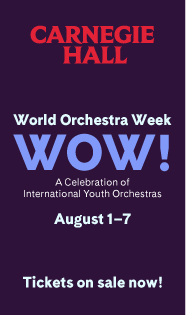After visa issues, visionary music for piano, bass and umbrella at Roulette

Reinier van Houdt performing Walter Marchetti’s “Concerto para la mano sinistra” Thursday night at Rouette. Photo: G. Grella
Before the music began Thursday night at Roulette, singer and Interpretations series impresario Tom Buckner took the stage to express outrage over the difficulty his organization faced in securing a performing visa for Dutch pianist Reinier van Houdt. It took two attempts and twice the expense to convince immigration authorities that van Houdt brought unique expertise as a performer.
After witnessing van Houdt play Walter Marchetti’s Concerto per pianoforte per la mano sinistra – in un solo movimento – the United States premiere no less – Buckner’s dilemma is incomprehensible. Marchetti’s concerto is a singular composition, beautifully played by the pianist who is one of the composer’s precious few advocates.
Born in 1931, Marchetti found direction in the work of John Cage and has a long association with the FLUXUS movement. His most well-known piece is probably Natura Morta from 1988, for a piano covered with fruits and vegetables. The concerto dates from 1994 and is subtitled “for umbrella and piano.” The work is played with the right hand while the left holds an umbrella to protect that hand from the rain.
While this may all seem like a puerile joke, this is a serious work. It shares the aesthetic of Morton Feldman in that the music is quiet and has a pulse that suspends time, though lacking Feldman’s rigorous rhythmic organization. The music’s roots are in Satie, with some of the Frenchman’s sonic ring and grave insouciance.
Chords, mostly two-note, some consonant and some dissonant, come slowly and seemingly at random, and there are no discernible repetitions for some time. There is an occasional arpeggiated melody. The mood is hushed and lovely and engrossing.
Gradually, subtle repetitions reveal themselves—a sequence of chords here, and slowly formed shape there. With about three-quarters of the music gone by, a five note melody, first falling then rising, appears. It’s the opening of Beethoven’s Symphony No. 5, via the “Alcotts” movement of Charles Ives’ Concord Sonata. The pianist repeats the phrase, then brings it back twice more after some intervening chords.
The effect of this recognizable phrase is neither dramatic nor historical, yet reinforces the astonishing conception and craft of the piece: the music flows along with a balance of randomness and purpose, and the melody might just be a coincidental sequence of notes. Marchetti produced them, but he made them sound accidental and serendipitous. The music is serene and subliminally powerful.
Van Houdt’s performance was preceded by a strong set from the excellent bassist James Ilgenfritz. He’s comfortable in classical, new music and jazz and has tremendous technique. He produces a full, grainy sound in every register, arco or pizzicato, and has astonishingly accurate intonation, even when playing sul ponto or forming harmonics.
Ilgenfritz began his program with a surprise, a 1961 piece from Pauline Oliveros, Trio for Trumpet, Accordion, and String Bass. The work is nothing like her “deep listening” music. Instead the influence is closer to Webern—generally atonal with short diatonic lines and cadences. In five short, bracing movements she parses out row-like phrases around the instruments, tossing notes around in hocket. There are rapid shifts from lyrical lines to pointillist attacks, and undercurrents of querulous conversation.
Ilgenfritz worked with electronics in two works: the world premiere of Xigliox by JG Thirlwell and an improvisation with the composer Jason Ponce (both Ponce and Thirlwell sat at laptops). Thirlwell’s piece has some raw power from moment to moment, but it’s shapeless, switching arbitrarily from one motive to another, and the audio processing adds color without have a clear musical purpose.
The improvisation was abstract and evocative. Ilgenfritz produced a series of soft, pitched timbres using a variety of bowing techniques, and Ponce gathered samples and transformed them live into fields of sound, whispering, groaning and snapping. The integration of acoustic and electronic timbres was excellent, a testament to how well the musicians listened to each other. They also solved the most difficult problem in improvisation: finding the perfect moment to stop.
The composers who shined brightest through Ilgenfritz’s playing were Annie Gosfield and Anthony Braxton. Gosfield’s piece for solo bass, Rolling Sevens and Dreaming Elevens, was also a world premiere. The title explains the intervals she built the music around, and the way she structures the dominant seventh throughout the work makes it sound like high-level blues. Even more, with the regular phrase lengths, roughly verse-chorus-verse structure, and the screaming, diving musical gestures it sounds like a Jimmy Page solo, especially with Ilgenfritz’s scintillating playing.
Braxton’s music ended the set with a series of short compositions – the trumpet cadenza from “103,” the bass part from “173,” and parts of the quartet pieces “40f,” “110A,” “69M,” “40(O)” and “23C” – elided together into a working suite.
Braxton’s work alternates between maddening pretension and brilliant clarity; these works were the latter. The music is challenging – Ilgenfritz was all over the instrument with hands and bow, and demands exact tempo and rhythm. The best writing has the bassist spelling out harmonies while playing long melodic lines, full of wide intervals, and sounds like Baroque music. Stringing together these dense miniatures, Ilgenfritz created a contemporary concerto, with himself the star soloist.
The Interpretations series continues with Bruce Gremo and Joan La Barbara, 8 p.m. February 20, 2014 at Roulette interpretations.info

Posted Dec 14, 2013 at 11:48 am by Thomas Buckner
Thank you for the prompt,insightful and intelligent review of our concert. I appreciate your including the visa problems I mentioned at the concert.
I also appreciate your including prominently the information about the nest concert.
All best,
Tom Buckner
Posted Dec 14, 2013 at 11:56 am by Tom Davey
A lovely and comprehensive review. Sorry I missed the concert. The appreciation of Marchetti — a composer I do not know — is sending me onto the Internet to find some recordings.